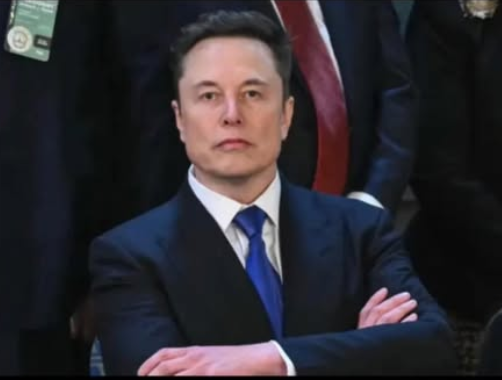
Elon Musk Fires Back with Legal Threat After Former Rep. Bowman Brands Him a ‘Nazi’ and ‘Thief’
Elon Musk is taking legal action into serious consideration after former Representative Jamaal Bowman (D-N.Y.), a once prominent member of the far-left “Squad,” unleashed a scathing attack on the billionaire. In a recent CNN appearance, Bowman referred to Musk as both a “Nazi” and a “thief,” sparking Musk’s sharp response.
Following Bowman’s comments during a roundtable discussion on CNN, Musk wasted no time, posting on X (formerly Twitter), “Lawsuit inbound.”
Bowman, who faced defeat in the Democratic primary last year to a centrist pro-Israel candidate, went on to criticize Musk’s leadership. He claimed the tech mogul was “incompetent” in his role and suggested that the American public had lost trust in him.
He further amplified his accusations, saying, “How do we know? It was contested in court after he fired tens of thousands of people. Now, they’re being forced to return after a court order.”
Musk didn’t stop there, with Bowman adding, “He’s a thief. He’s a Nazi,” along with claims that Musk has lost public confidence.
Elon Musk Faces New ‘Nazi’ Accusations as Left-Leaning Media and Politicians Continue Attacks
Elon Musk has long been targeted by left-leaning media, with some outlets accusing him of performing a “Nazi salute” during President Trump’s inauguration. The controversial claim drew sharp criticism from Musk’s mother, Maye Musk, who urged her son to take legal action against CNN and other media organizations for spreading what she called a “false and defamatory” narrative.
The attacks didn’t stop there. Rep. Ayanna Pressley (D-Mass.), a former “Squad” ally of Jamaal Bowman, recently reignited the baseless accusations, labeling Musk a “Nazi nepo baby” during a speech last month.

Jamaal Bowman’s Loss and Continued Controversies, as Elon Musk and Conservatives Rally Behind Legal Action
In the July Democratic primary for New York’s 16th Congressional District, Jamaal Bowman, a former member of the left-wing “Squad,” was defeated by George Latimer. Bowman, who had previously accused Israel of committing “genocide” during its war with Hamas, alleged that the American Israel Public Affairs Committee (AIPAC), a major pro-Israel lobbying group, spent millions to “brainwash” voters against him.
Bowman’s controversies didn’t end there. In 2023, the House of Representatives officially censured him for setting off a fire alarm in the Capitol during key negotiations over a government shutdown. Many perceived this action as an attempt to delay the process.
Conservative journalist Andy Ngo, known for his attack by Antifa rioters in Portland in 2019, voiced support for Musk’s potential legal action. Writing for Fox News, he argued that CNN exposed itself to liability by repeatedly allowing guests to make defamatory statements without scrutiny. “It is not protected to accuse someone of a crime,” Ngo wrote.
Prominent conservatives also rallied to Musk’s side. Sen. Mike Lee (R-Utah) took to X, urging action: “Defamation against conservatives must be addressed or it will never end.” Rep. Nancy Mace (R-S.C.) joined in, calling for Musk to “retaliate” against the accusations.
Meanwhile, Musk is working hard to boost Republican engagement in the 2024 elections. In Wisconsin, a crucial battleground state, he’s partnering with voter registration activist Scott Presler to encourage turnout for a Supreme Court election. The race has high stakes, with conservative candidate Brad Schimel vying for a seat that could tip the balance of power in the state’s highest court.
Schimel is receiving significant support, including $1 million from America PAC, a political action committee founded by Musk to back Trump’s 2024 campaign. Additionally, Musk’s organization, Building America’s Future, spent $1.5 million on ads promoting Schimel.
Schimel’s opponent, liberal judge Susan Crawford, holds the key to the future political landscape in Wisconsin. Should Crawford win, the court’s current 4-3 liberal majority will remain intact, and justices may approve a gerrymandering of the state’s congressional districts that could cost Republicans at least two U.S. House seats—potentially shifting the balance in favor of Democrats by 2026.